- Send email to your Virginia state legislators and officials asking them to pass the National Popular Vote bill
- Phone numbers of Virginia Senators
- Phone numbers of Virginia Delegates
- Send a letter-to-editor to Virginia newspapers
- National Popular Vote’s Facebook page
- National Popular Vote’s Twitter
On February 12, 2026, the Virginia House of Delegates joined the Virginia Senate in passing the National Popular Vote bill. The bill passed the House on third reading by a 61-36 vote (status of HB965).
- WFXR story: Bill to add Virginia to National Popular Vote Interstate Compact passes both chambers of state legislature
- 13 News Now story: Virginia proposal aims to align electoral votes with national popular vote
- ARL Now story: Bill to support popular vote in presidential elections passes Virginia Senate
- 12 On Your Side: Virginia Democrats advancing measure to elect president by popular vote
- NBC News 10 (WSLS) story: Electoral College Showdown
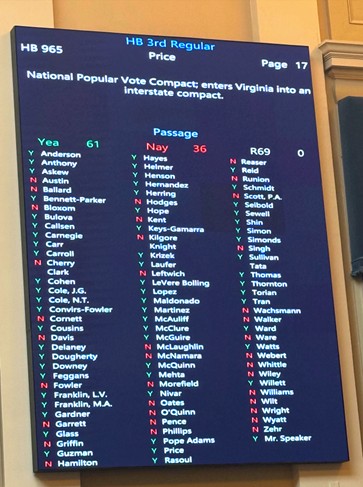
On February 11, 2026, the Virginia House passed the bill on second reading on February 11.
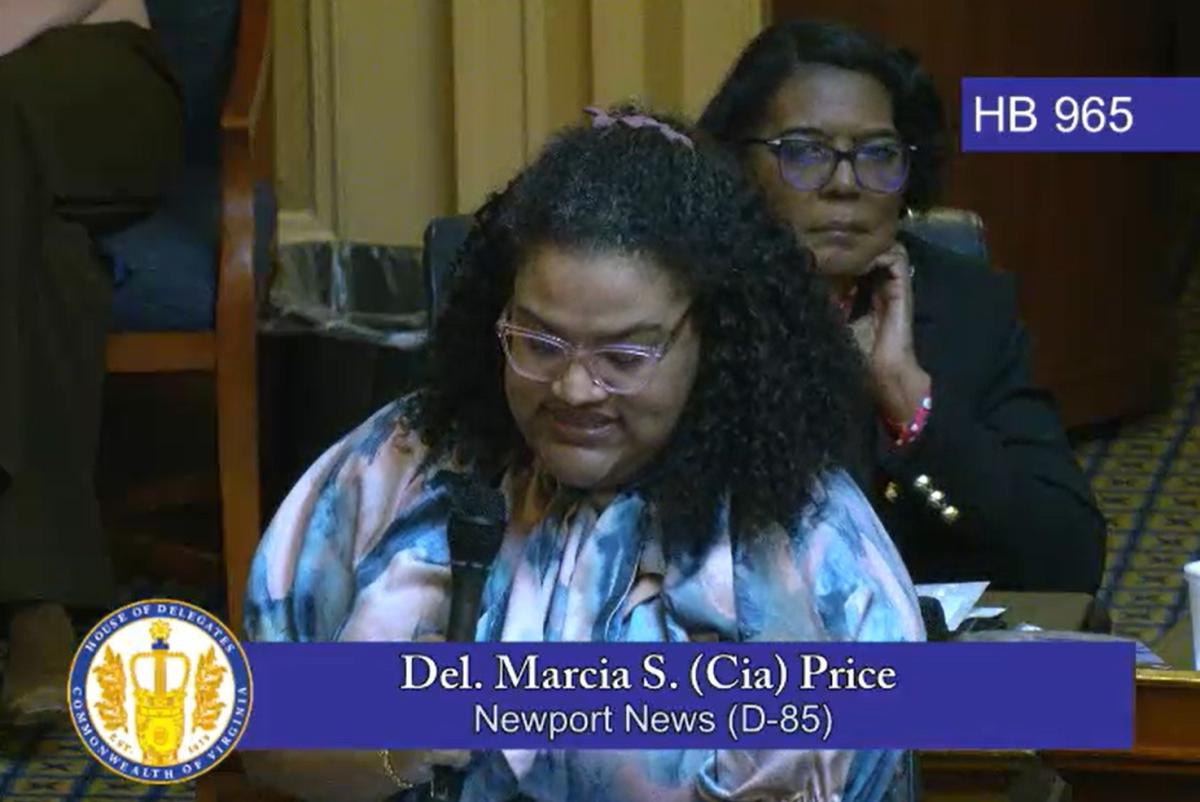
Virginia Delegate Cia Price, Chief Patron of the National Popular Vote bill, debates bill on February 11
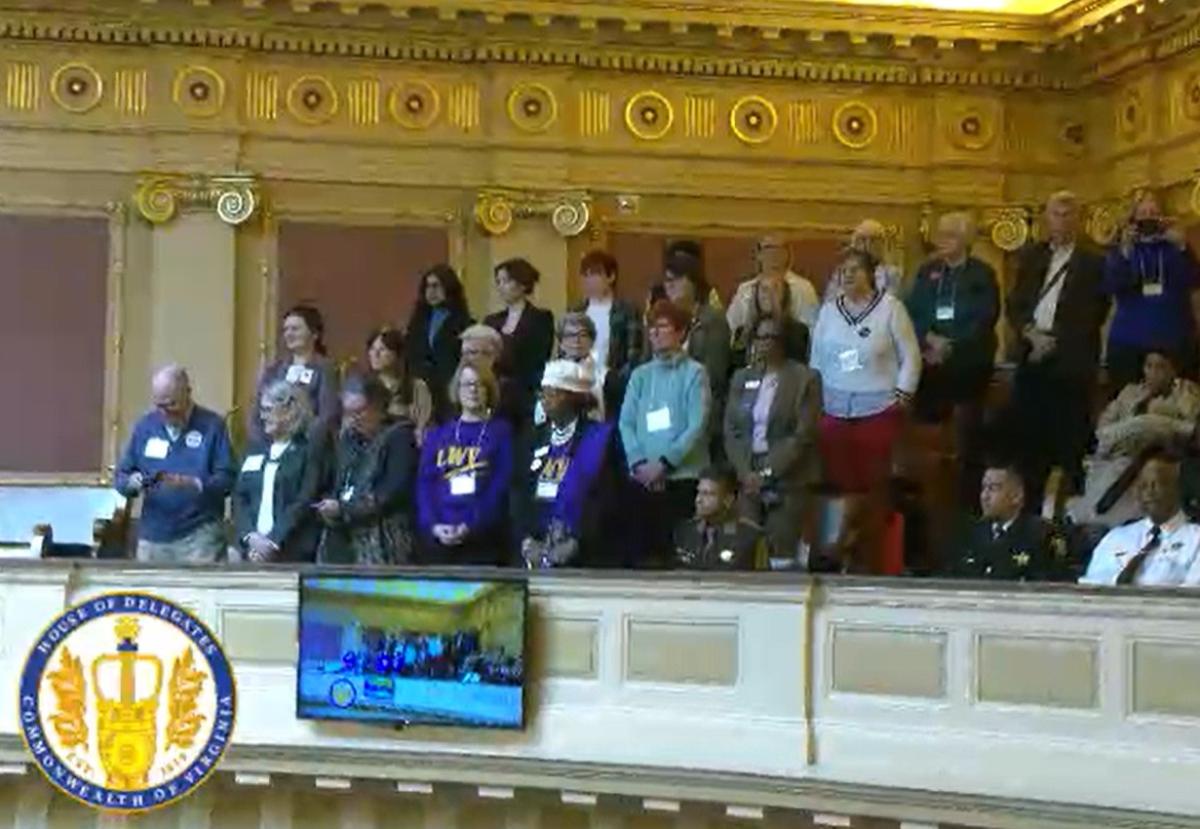
League of Women Voters of Virginia being recognized during House session on February 11
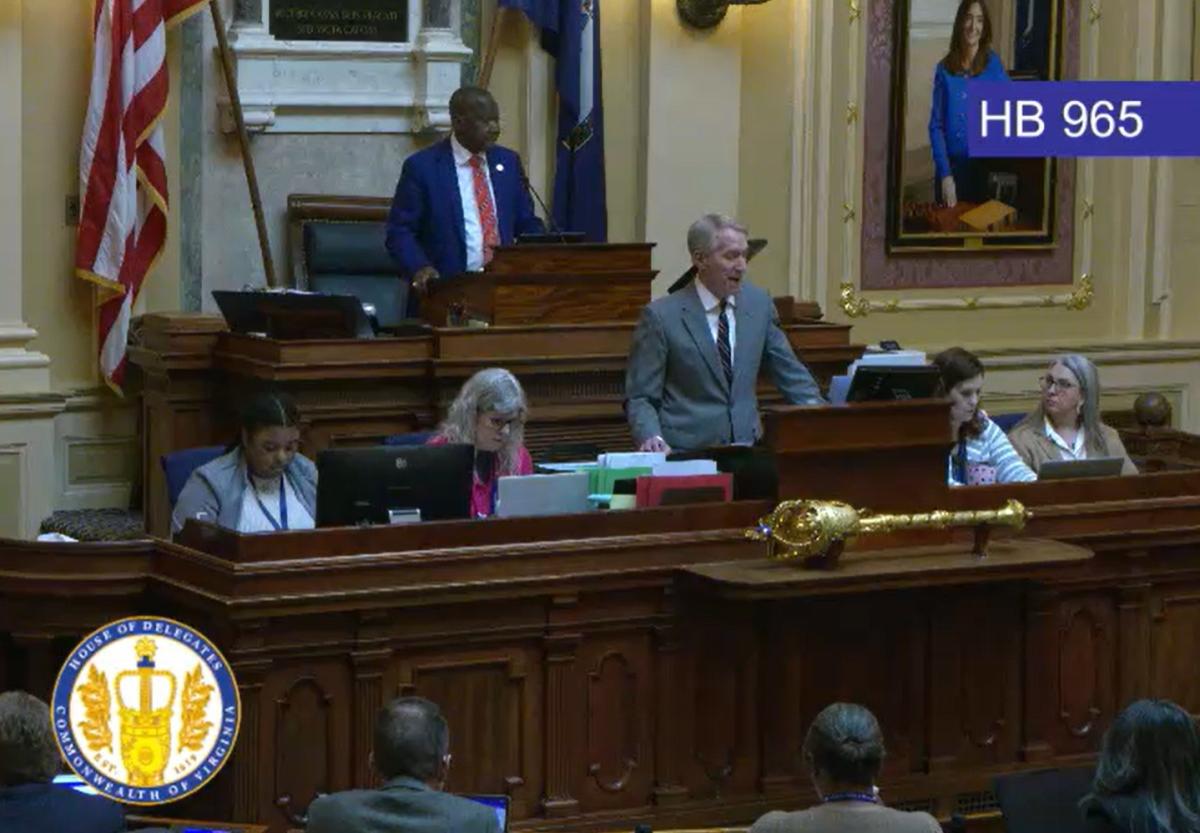
Speaker Scott presiding over Virginia House of Delegates on February 11
On February 9, 2026, the Virginia Senate passed the National Popular Vote bill by a 21-19 vote (status of SB322). The bill now goes to the House.
- Richmond Times-Dispatch: Sen. Surovell makes comments about the Electoral College
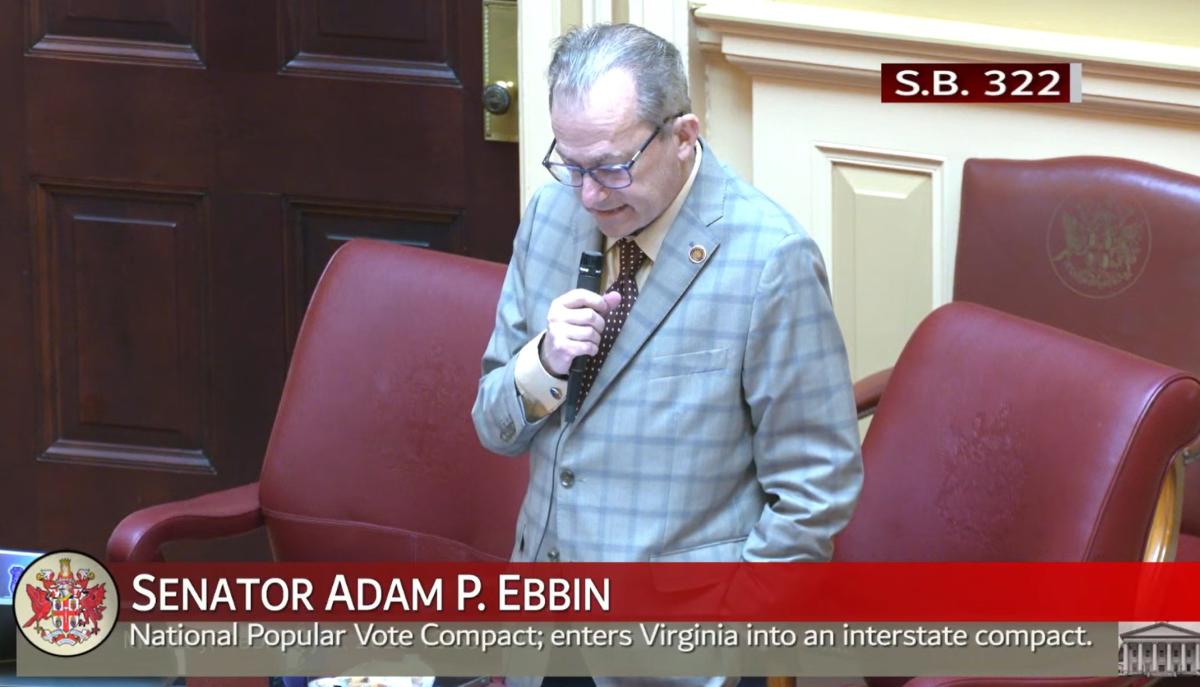
Senator Adam Ebbin during debate of National Popular Vote bill on February 9, 2026
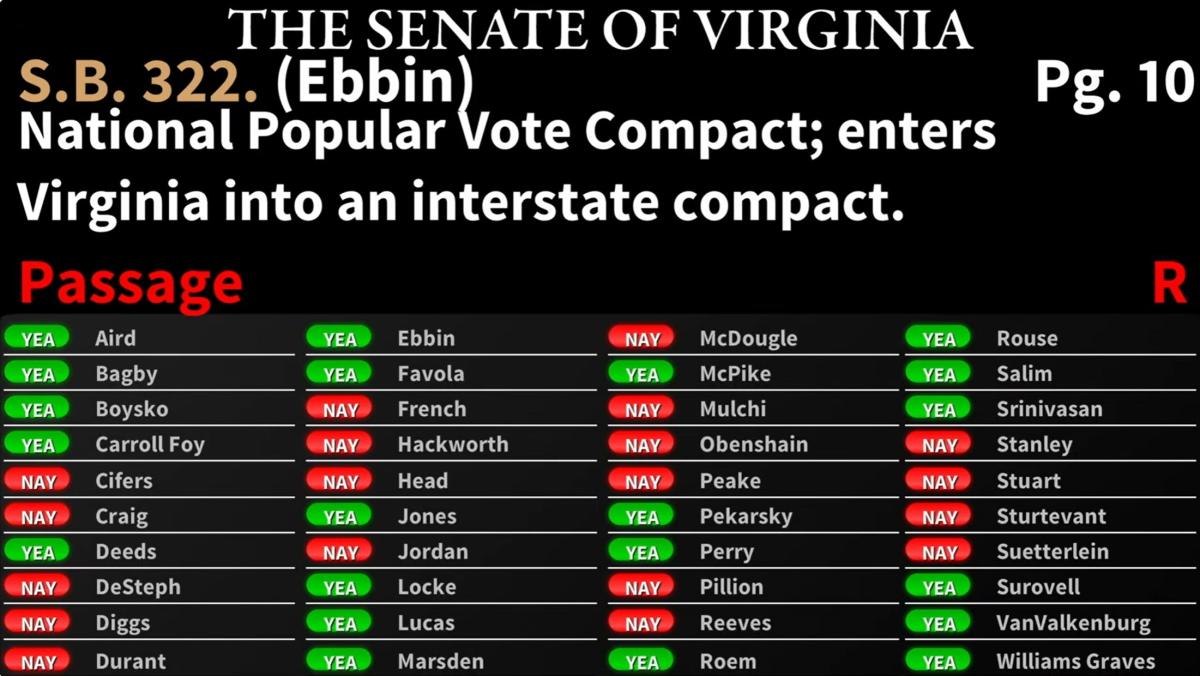
Senate Roll Call on the National Popular Vote bill on February 9, 2026
On February 6, 2026, the Virginia House Privileges and Elections Committee approved the National Popular Vote bill by a 14-8 vote (status of HB965).
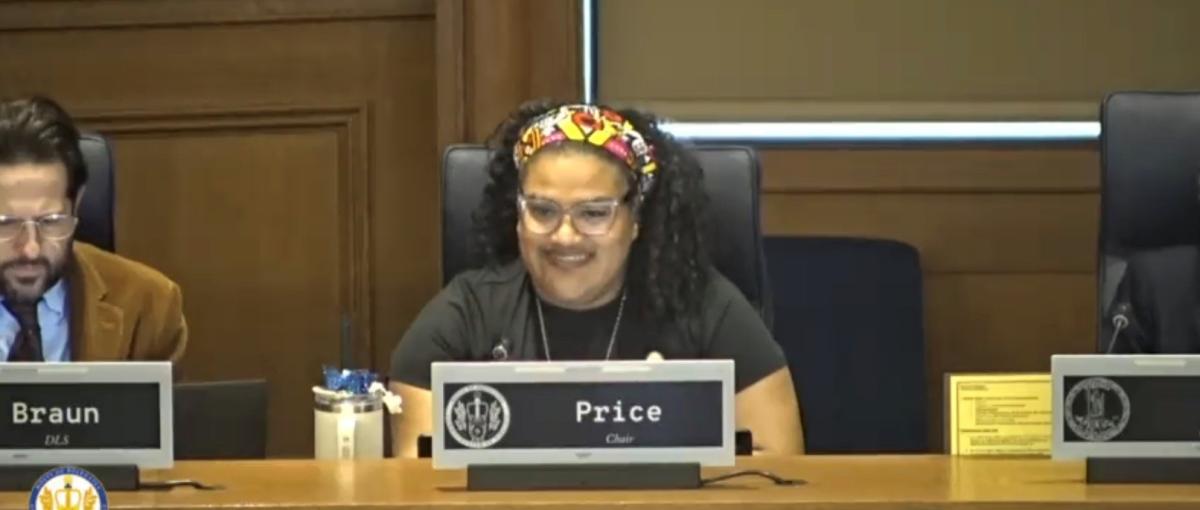
Delegate Cia Price, Chair of the House Privileges and Elections Committee, at committee hearing on the National Popular Vote bill on Feburary 6, 2026
The action of the House Privileges and Elections Committee came after the Subcommittee on Voting Rights of the P&E Committee had approved the bill by a 5-3 vote.
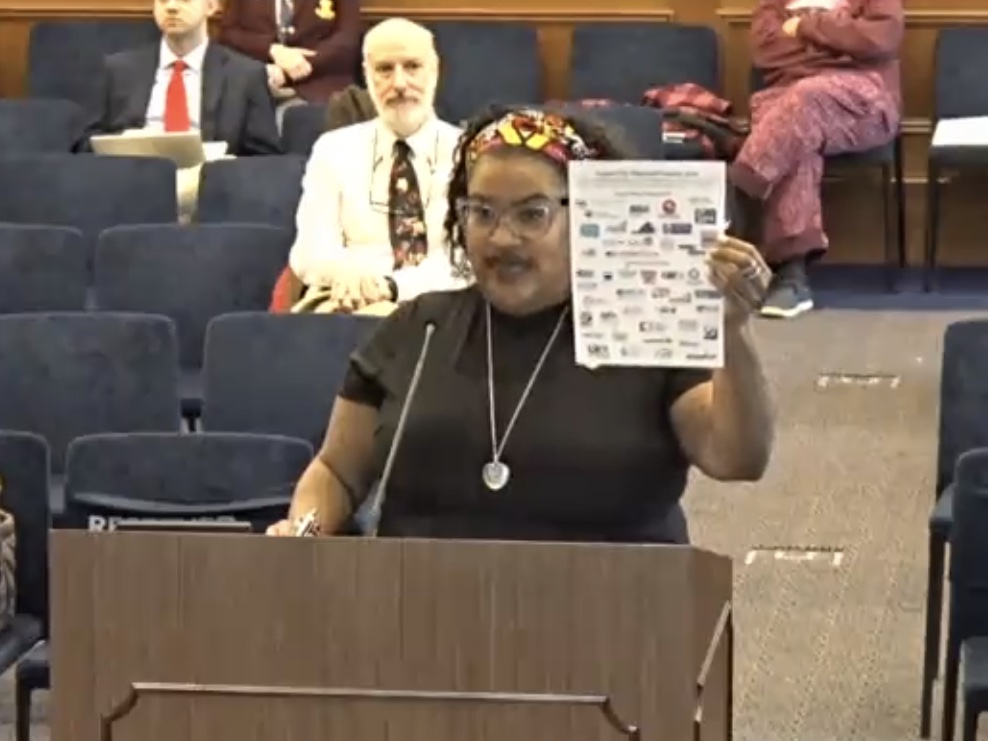
Delegate Cia Price, Chief Patron of the National Popular Vote bill in the House, presents the bill at Subcommittee hearing on February 6, 2026
On February 3, 2026, after a public hearing, the Virginia Senate Privileges and Elections Committee passed the National Popular Vote bill out of committee by a 8-6 vote (status of SB322).
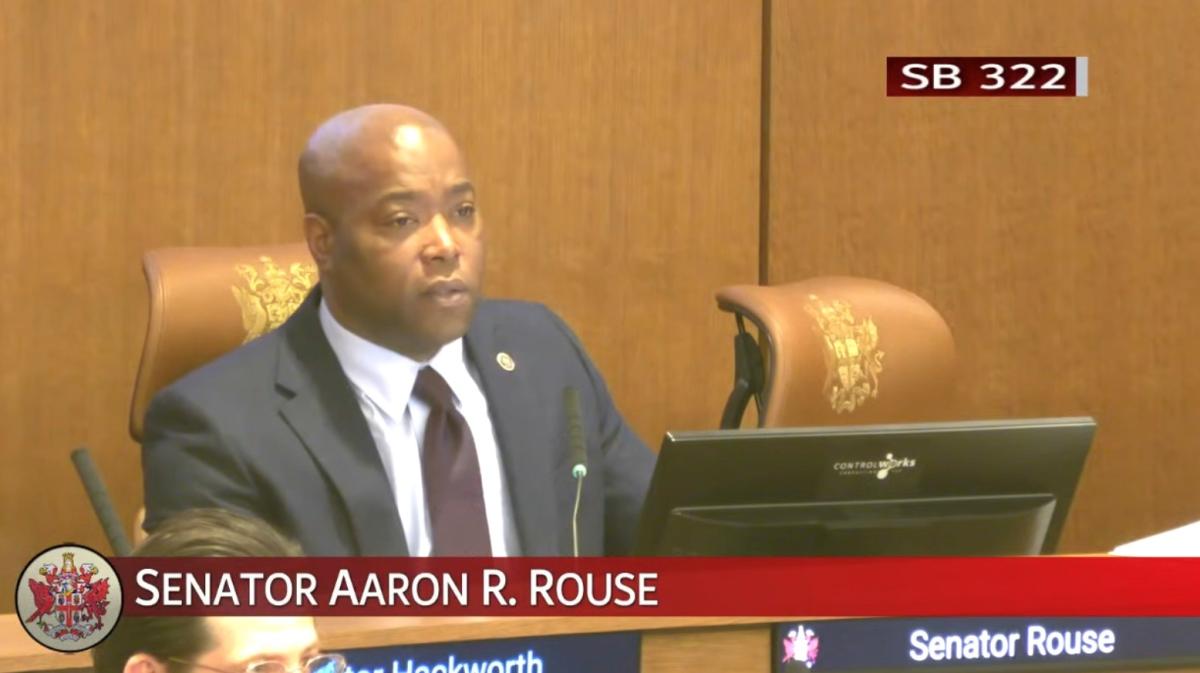
Senator Aaron Rouse Chairing Hearing of Senate Privileges and Elections Committee on February 3, 2006
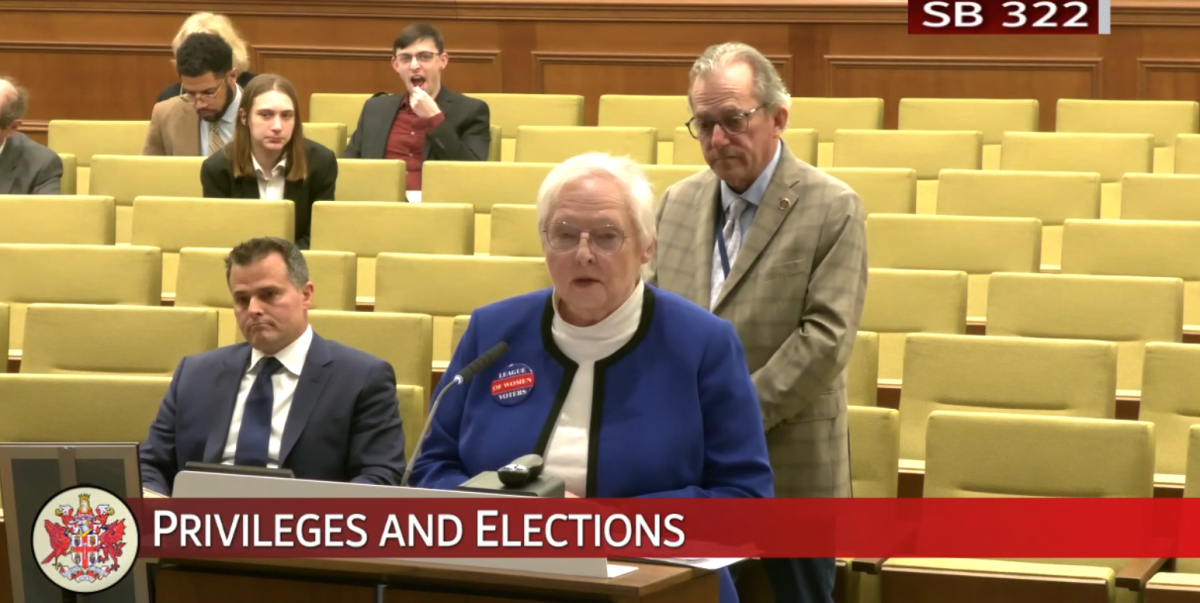
Jane D. Newell of the League of Women Voters of Virginia testifies at Senate committee hearing, with Senator Adam Ebbin, Chief Co-Patron of the bill (right) and Scott Drexel of National Popular Vote (left).
On January 13, 2026, Delegate Marcia S. "Cia" Price, Chair of the House Privileges and Elections Committee, introduced the National Popular Vote bill as chief patron (status of HB965). Senator Adam Ebbin introduced the bill as chief patron in the Senate (status of SB322).
In January 2023, Delegate Dan I. Helmer introduced the National Popular Vote bill as chief patron (status of HB375).
In January 2021, Senators Adam Ebbin and Louise Lucas have introduced the National Popular Vote bill (status of SB1101) as chief patrons, and Senator Majority Leader Richard Saslaw and Senators Janet Howell, Jennifer Boysko, and Scott A. Surovell as co-patrons, and Ghazala F. Hashmi as patron. Also, 18 Delegates are patrons on the Senate bill, namely Dawn M. Adams, Hala S. Ayala, Betsy B. Carr, Lee J. Carter, Joshua G. Cole, Elizabeth R. Guzman, Patrick A. Hope, Kaye Kory, Mark H. Levine, Delores L. McQuinn, Kenneth R. Plum, Marcia S. "Cia" Price, Sam Rasoul, Ibraheem S. Samirah, House Privileges and Elections chair Marcus B. Simon, Shelly A. Simonds, Schuyler T. VanValkenburg, and Vivian E. Watts.
Delegate Mark Levine introduced the bill in the House as chief patron (status of HB1933), with House Privileges and Elections chair Marcus B. Simon and Marcia S. "Cia" Price as chief co-patrons. Also, 12 additional Delegates are patrons on the House bill, namely Hala S. Ayala, Betsy B. Carr, Lee J. Carter, Dan I. Helmer, Patrick A. Hope, Sally L. Hudson, Kaye Kory, Sam Rasoul, Danica A. Roem, Ibraheem S. Samirah, Shelly A. Simonds, and Kathy K.L. Tran as well as Senator Scott A. Surovell as patrons.
- Op-Ed by Delegate Mark Levine in Washington Post on December 11, 2020 entitled "Virginia should join a compact that would give its electoral votes to the popular vote winner"
On November 11-12, 2020, 983 Virginia voters were asked:
“How do you think we should elect the President? Do you think it should it be the candidate who gets the most votes in all 50 states, or do you think it should be the current electoral college system?”
The poll was conducted by Public Policy Polling and the results were as follows:
- By political party, 61% of Virginia voters, including 73% of Democrats, 57% of Independents, and 50% of Republicans favor a national popular vote for President
- By part of state, 60% of those residing in urban areas, 61% of those in suburban areas, and 61% of those in rural areas favor a national popular vote.
- By gender, 65% of women and 56% of men favor a national popular vote. By race, 59% of whites and 70% of African-Americans favor a national popular vote.
- By age, 63% of 18-to-45-year-olds, 61% of 45-to-65-year-olds, and 60% of over-65-year-olds favor a national popular vote.
- By education, 66% of those with high school education or less, 61% of those with some college, 55% of those with a two-year college degree, 52% of those with a four-year college degree, and 66% of those with a post-graduate degree favor a national popular vote.
- Tabulated according to their recent vote for President, 74% of those who voted for Joe Biden and 44% of those who voted for Trump favor a national popular vote. Cross-Tabs from poll
On February 25, 2020, the Senate Committee on Privileges and Elections held a hearing on the National Popular Vote bill (status of HB177), and carried over consideration of the bill until a hearing in November.
- Richard Times-Dispatch article entitled "Senate panel punts on Virginia joining states pushing popular vote over Electoral College"
- Virginian Pilot article
- Washington Times article entitled "Virginia punts on National Popular Vote, will reconsider after November election"
On Feburary 11, 2020, the Virginia House of Delegates passed the National Popular Vote bill on 3rd reading by a 51-46 vote. Delegate Luke Torian was not in the House chamber at the time of the roll call, but intended to vote YES. The Virginia House is the 41st state legislative chamber to have passed the bill. Roll call. The House sent the bill to the Senate (status of HB177).
- Washington Post article entitled "Bill giving electoral votes to popular vote winner passes."
- The Hill article entitled "Virginia House passes bill to award electoral votes to whoever wins the popular vote"
- Washington Times article entitled "Virginia House approves bill to join National Popular Vote, bypass Electoral College"
- NBC12 story entitled "Bill giving electoral votes to popular vote winner passes state House"
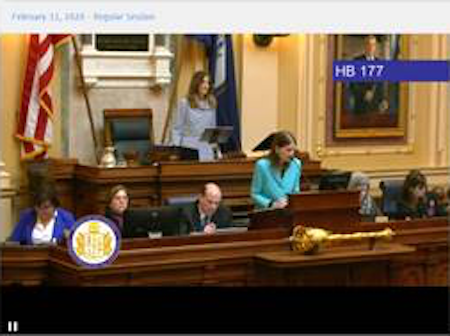
On February 10, 2020, the National Popular Vote bill was debated by the Virginia House of Delegates on its 2nd reading, and passed on to a 3rd reading (expected to be on Tuesday February 11).
On Feburary 7, 2020, the National Popular Vote bill was approved by the full House Committee on Privileges and Elections by a 12-9 vote (status of HB177).
On January 27, 2020, the National Popular Vote bill was approved by a sub-committee of the House Committee on Privileges and Elections. The sub-committee approved HB177.
Three identical versions of the National Popular Vote bill were introduced into the Virginia legislature in January 2020 (two in the House, and one in the Senate). There are 23 Delegates and 4 senators who are patrons (sponsors) of the various identical bills.
- Delegate Marcia S. "Cia" Price introduced the National Popular Vote bill in the Virginia House of Delegates as Chief Patron (status of HB199). Delegate Marcus B. Simon is chief co-patron. Additional patrons include Senate Majority Leader Richard L. Saslaw, Senator Jennifer B. Boysko, and Senator Jennifer L. McClellan, as well as Chairman of the House Privileges and Elections Committee Joe Lindsey and Delegates Hala S. Ayala. Jeffrey M. Bourne, Betsy B. Carr, Jennifer Carroll Foy, Lee J. Carter, Joshua G. Cole, Karrie K. Delaney, Nancy D. Guy, Elizabeth R. Guzman, Patrick A. Hope, Kaye Kory, Sam Rasoul, Danica A. Roem. Ibraheem S. Samirah, Shelly A. Simonds, Schuyler T. VanValkenburg, Vivian E. Watts, and Rodney T. Willett.
- Delegate Mark H. Levine also introduced the National Popular Vote bill in the Virginia House of Delegates as Chief Patron (HB177). Delegate Jennifer Carroll Foy is chief co-patron. Additional patrons include Delegate Dawn M. Adams, Hala S. Ayala, Nancy D. Guy, Kaye Kory, Marcia S. "Cia" Price, Ibraheem S. Samirah, and Kathy K.L. Tran.
- Senator Adam P. Ebbin introduced the National Popular Vote in the Virginia Senate as Chief Patron (status of SB399). Additional patrons include Senator Jennifer B. Boysko (also on HB199). The bill was referred to the Senate Committee on Privileges and Elections.
In January 2019, Delegates Mark H. Levine, Marcus B. Simon, and Kaye Kory introduced the National Popular Vote bill in the Virginia House of Delegates (status of HB 2422).
In 2018, Delegates Marcus B. Simon and Mark H. Levine introduced the National Popular Vote bill in the Virginia House of Delegates (HB99). On February 1, 2018, Subcommittee #2 of the House Privileges and Elections Committee laid the bill on the table.
In January 2017, Delegates Marcus B. Simon, Kaye Kory, Mark H. Levine, Kenneth R. Plum, and Marcia S. “Cia” Price and Senators Adam P. Ebbin, Janet D. Howell, and Scott. A. Surovell introduced the National Popular Vote bill (Status of HB1482).
In January 14, 2009, Senator Senator Yvonne B. Miller introduced the National Popular Vote bill into the Virginia Senate for the 2009 session (SB 824).
A survey of 800 Virginia voters conducted on December 21-22, 2008 showed 74% overall support for a national popular vote for President. By age, support for a national popular vote was 82% among 18-29 year olds, 75% among 30-45 year olds, 75% among 46-65 year olds, and 68% for those older than 65. By gender, support for a national popular vote was 82% among women and 65% among men. By race, support for a national popular vote was 73% among whites (representing 76% of respondents), 79% among African Americans (representing 21% of respondents), and 65% among Others (representing 3% of respondents). By political affiliation, support for a national popular vote was 79% for a national popular vote among liberal Democrats (representing 17% of respondents), 86% among moderate Democrats (representing 21% of respondents), 79% among conservative Democrats (representing 10% of respondents), 76% among liberal Republicans (representing 4% of respondents), 63% among moderate Republicans (representing 14% of respondents), and 54% among conservative Republicans (representing 17% of respondents), and 79% among Others (representing 17% of respondents). The survey had a margin of error of plus or minus 3 1/2%.